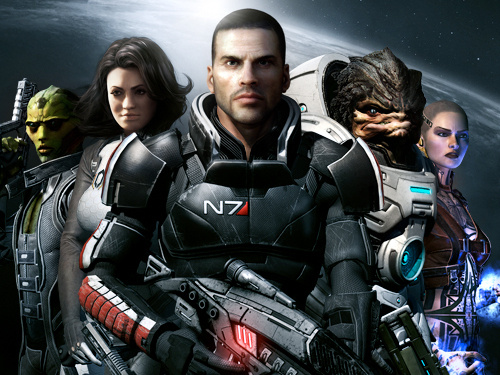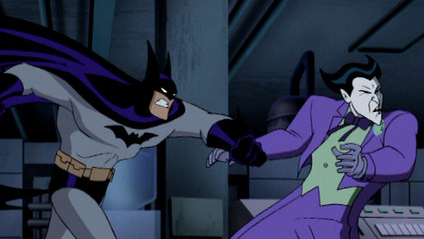So one of the major things that I wanted to focus on when I started designing games, was exploring what video games could become as an artistic medium. I know I'm definitely not the first one to bring up this issue and I think I can assume that most, if not all, of the indie developer community already considers it an art. That being said, there are a large portion of people out there who either don't agree with us, or simply don't care. And to be honest, I'm fine with that. As opposed to trying to convince them, I'll spend my time doing what I do best, and that's making games. You can't convince someone who isn't listening anyway, so to me, the only solution to this problem is time.
So now that we're off that topic, let's start dissecting what actually makes video games different from any other artistic medium. Obviously one of the first things that comes to mind is the fact that video games are played. Video games take input, which can't be said of any other medium. Books must be read, movies must be watched, music must be heard, etc. As the only medium which can accept user input, this is the only medium where the story can be affected by the user (I'm not counting Choose Your Own Adventure Books).
Now many games have caught on to this already and realized that this allows for multiple scenarios within the same story. There are quite a few notable series of games that have already played with the concept of alternate storylines, and personally I don't have much interest in currently exploring that method of storytelling myself. So let's explore how else user input could add to the medium in an artistic sense.

A result of the story being affected by the user, is that the story now relies on the user for certain storyline events. They are given somewhat a sense of responsibility over the storyline, as opposed to just 'soaking it in' like you would expect from other mediums. This sense of responsibility opens a whole new realm of possibility, not only in just storytelling methods, but also in the emotions felt by the player of the game. Let's take Pikmin for example.
In Pikmin, the player must raise and protect their pikmin in order to progress. The player is given the responsibility of raising them and protecting them, but if they screw up it will cost the lives of their pikmin. While pikmin can be considered fairly expendable, the player does feel a sense of disappointment for letting them die. While some players may actually feel a sense of loss due to actual attachment to their cute little creatures, others may just feel disappointed because they know it will require them to harvest more pikmin.
While the actual emotion felt is dependant on the player, the sense of loss exists for all players. This emotion could not exist without input from the player, as they were to blame for something going wrong in the story at all. Since units in Pikmin don't have much in the way of unique personalities, let's further explore this concept using Fire Emblem. While I've never actually played a game in the series, I know that once you lose one of your allies in the game, they don't come back. This is a harsher version of it, but it is still the same sense of loss being felt by the player.
Now notice how this specific emotion cannot be pulled from the user without input. This is an example of a feeling which is not possible to reproduce in any other medium. Yes, one could argue that they would feel loss by having a favorite character die in something like a movie or a book. While this is true, the scale of the feeling is incomparable. This is due to the fact that in games, the player feels direct responsibility, whereas in other mediums the player is following a set script.
This brings me to my main point, one of the fundamentals of what makes games different from other artistic mediums: the idea that games allow us to explore the ability of 'I did this' or 'We did this' instead of 'They did this'. When watching a movie, you can only see things get achieved by the characters on the screen. You have no personal sense of achievement, but you still enjoy seeing your favorite characters achieving their goals because you like them.


With games, we instead get this sense of 'I did this' or 'We did this', for solo and team based games respectively. Because we are given the ability to give input and affect the outcome as players, we also leave ourselves open to express a wider variety of feelings throughout our experience, such as the standard sense of achievement that most people feel when playing games. The examples I gave earlier of Pikmin and Fire Emblem showcase the inverse of this, a sense of 'I didn't do this', which in this case culminates in a sense of loss for the player. By playing around with how we use these mechanics, we are likely to uncover other ways in which to express emotion through the player, but that's all in due time.
So we've identified one attribute that makes game unique as an artistic medium, but that's definitely just scratching the surface. I think anyone reading this can agree that it will be years before people fully explore the intricacies behind the art of game design. That being said, we've got to start somewhere don't we? I want to see this medium grow as well as mature, so I think it's important that we begin to focus on the things that make us unique and different first, so we can expand on those ideas in the future.
